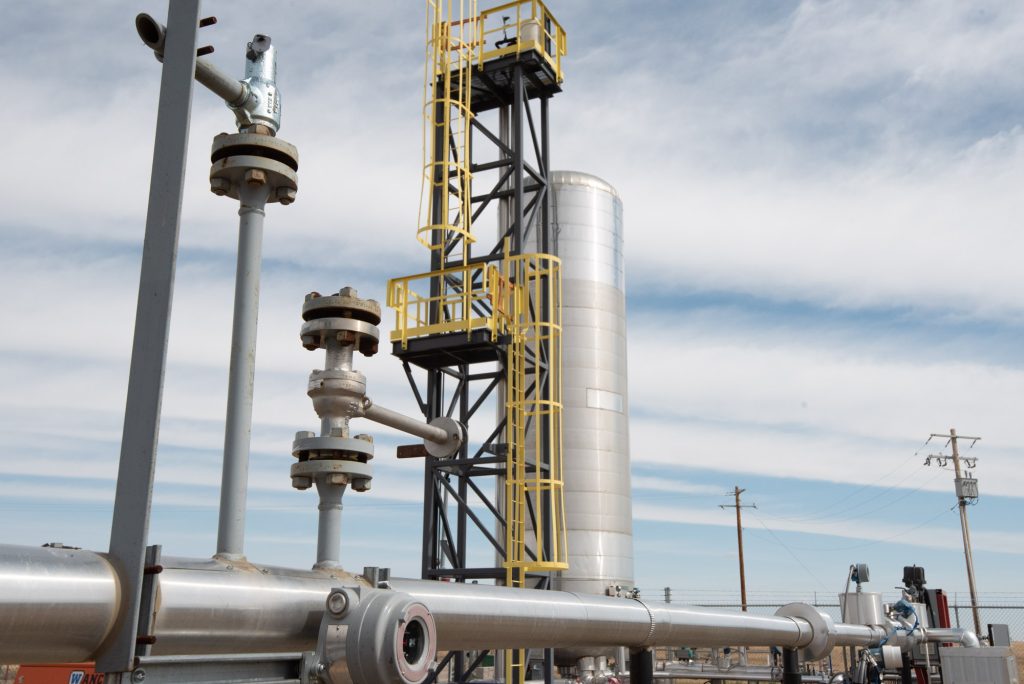Background
Carbon Upcycling Technologies was developing a technology to chemically absorb CO2 emissions into solids, creating a portfolio of fine nanoparticles which have a number of applications such as a concrete coating and polymer additive.
Carbon Upcycling Technologies had proven the technology on a small scale but needed third-party validation that their technology could be viable in real-world conditions. In order to test the efficacy of their polymer membrane for CO2 capture, they needed a facility with the right instrumentation, equipment and expertise.
Solution
Carbon Upcycling Technologies approached Carbon Management Canada (CMC) as a partner to test an integrated CO2 capture and utilization process based on a unique polymer membrane that could eliminate the two-step process usually required for CO2 separation technologies.
“At the time of licensing, the technology was proven at 1,000 hours with simulated flue gas in a lab set up,” said Aproov Sinha, CEO of Carbon Upcycling. “We wanted a plug-and-play set up testing with real flue gas.”
“[CMC] have a lot of experience, not just in terms of the technology of carbon capture, but also in business. They were agile, able to cope with aggressive timelines and had the exact equipment, facility and expertise we required” said Sinha.
Carbon Upcycling Technologies’ focus was on carbon conversion and utilization pieces which can only be tested with the customers. They needed a technology partner that could help them validate their carbon capture technologies in a way that simulated real-world conditions, to de-risk a full pilot plant.
The flexibility of being able to use real-time results to rapidly respond to and adjust test protocols ‘on the fly’ gave them the speed and agility they needed to complete the research project within tight timelines. Conducting their research with the support of the team at the Richmond, BC facility enabled them to move to the next stage of their business and technology development: “We got a really solid report, data we were able to share with both end-users and investors. It moved our company forward” said Sinha.
Results
The project resulted in a credible research report including supporting data that proved the viability and scalability of the polymer membrane for CO2 capture. Carbon Upcycling used these research results to engage with clients and investors. And moving forward, because of the provided expert support they were able to commercialize their technology more rapidly.
About Carbon Upcycling Technologies
Operating in the heart of Canada’s energy sector, Carbon Upcycling is commercializing a suite of technologies that are poised to change what we believe about carbon.
Carbon Upcycling is on a mission to be part of creating a carbon-negative world, and they understand the importance of rapidly deploying carbon-negative solutions to achieve that goal.
The circular economy, where waste from industrial processes is recycled or repurposed into new products in a carbon-neutral (or carbon-negative) manner is coming. But Sinha believes that the timeline to achieve this is too long: “They are talking 10, 20, 30 years out. I believe we could and should validate and scale technologies much quicker – in the 5-year range.”
The carbon-negative world envisioned by Carbon Upcycling requires that the rate of technology validation and scale-up be accelerated considerably in Canada. Tangible change must happen quickly, and partnerships between innovators and companies such as CMC are a vital part of the solution.
